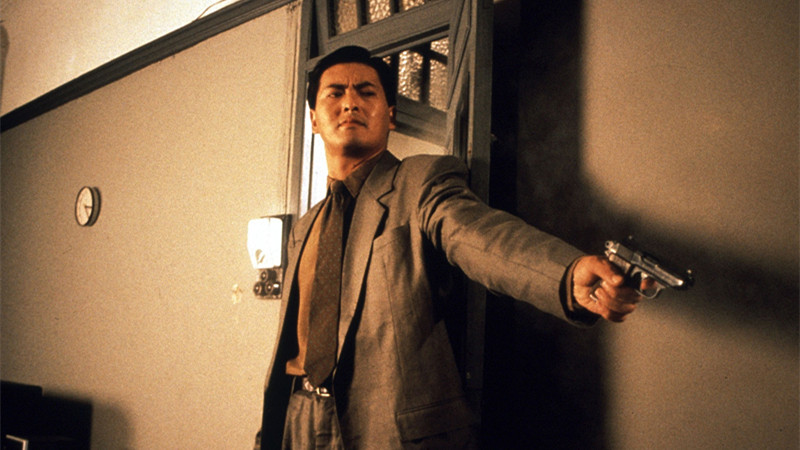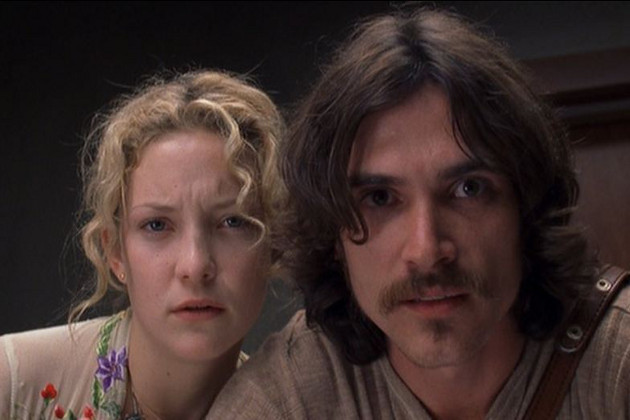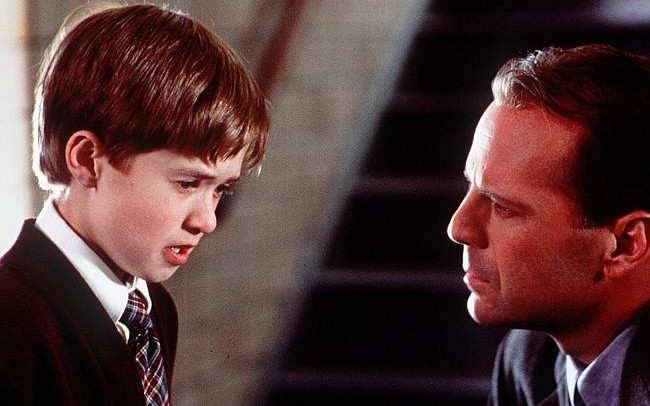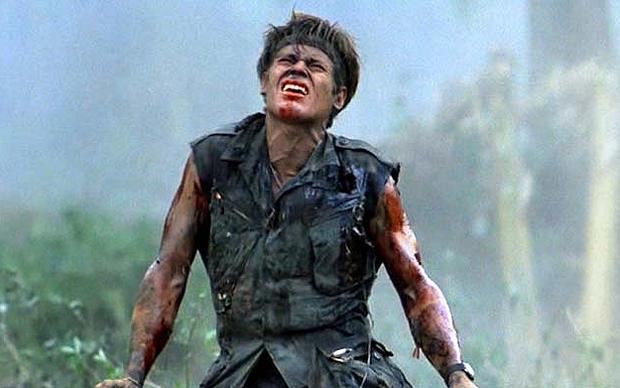In Hollywood, you are nothing but the last movie you made. Some movie directors learn that the hardest way, failing to find resources for their upcoming movies, sometimes it’s due to their lack of notoriety or reputation but also the fact that they are no more reliable when it comes to box-office results or critical appreciation.
Here is a list of 10 acclaimed directors whom names are terribly missing from nowadays movie posters.
1. John Woo

The Trademark: Doing wonders in Hong Kong, giving us some of the most fascinating violent action drenched movies of our era (A Better Tomorrow, The Killer, both with the equally good Chow Yun Fat). Woo was introduced to the USA by Jean Claude Van Damme with Hard Target. His impact on action cinema was immediate, bringing themes like honor, sacrifice and ancient values: Broken Arrow was a success and then his masterpiece: Face/Off which was the standard by then to every action movie.
Certainly, his opus is the least distinguished of the Mission Impossible, but he was the one that gave the saga his “Adrenaline James Bond” style.
The Crisis: Back in 2001, the post 11th September world required some heroic and patriotic war movies to touch hearts of the audience: We Were Soldiers, Hart’s War and Wind Talkers were produced at the same time with almost the same exigencies. The last one seemed like a empty boring movie on demand for a particular agenda, and backfired naturally.
The exact same thing happened a year after: the success of Minority Report made studios looking for another renowned Sci-Fi novel to adapt. Alex Proyas took I, Robot for the 20th Century Fox, Woo was assigned to adapt Philip K. Dick’s Paycheck for Paramount and Dreamworks. The movie failed to make any positive impression; it lacked John Woo’s DNA that can make any medium plot watchable and fun.
The two flops at the box-office were enough to put the man down for a while, leaving nothing but return to the motherland, producing and directing the epic Red Cliff and restarting his career all over. But, if it’s left to us, he can return to the USA whenever he wants, we missed seeing those white doves flying all over.
2. Cameron Crowe

The Trademark: Cameron Crowe is a former journalist for Rolling Stone magazine/director/writer/producer/actor (He worked on a Spielberg movie, check it out) who took Billy Wilder as his greatest role model (Check also their series of interviews), and it paid off.
His movies are timeless, always pleasant to watch, colorful, funny and warmhearted, filled with recognizable ordinary people, and great soundtrack. He can authorize himself remaking an obscure dark Spanish movie and make it bankable (Vanilla Sky) and even a semi-autobiographic filmed story that offered both his actresses (Frances McDormand and the revelation Kate Hudson) Oscar nominations in the same category (a rarity). Everything smiled to that all American prodigy.
The Crisis: For many, Elizabeth Town used too many formulas from the Crowe playbook, the movie appeared like a washed out version of his earlier movies, and making it worse, Orlando Bloom wasn’t the actor who could fill Tom Cruise or John Cusack’s big shoes. The lapse between his two next projects (About 6 years for We Bought a Zoo and 4 for Aloha) also distanced public from him.
The Matt Damon/Scarlett Johansson adaptation was a small commercial success but hasn’t had the same impact as its earlier work, the KO came with Aloha: a mess of a love story in a heavenly locations with a great cast (the polemic about white washing the character of Emma Stone didn’t help either).
We are pretty sure, Crowe will bounce back, he announced a sequel for Say Anything and he is working as producer and director for his TV Show Roadies. The other perk of any Cameron Crowe movie is that exquisite taste of music that always enchants the pictures on screen.
3. Brian de Palma

The Trademark: Brian de Palma came along to revolutionize Hollywood with his respective fellows (Spielberg, Scorsese, George Lucas, Francis Ford Coppola, Sydney Lumet….) in the 70’s. His filmography can be qualified as legendary: Carrie, The Fury, Blow Out, Scarface, the Untouchables, Carlito’s Way, Mission: Impossible…
He is the spiritual son Kubrick could have with Hitchcock. His mark is visible over both Hollywood blockbusters and indie movies.
The Crisis: The downfall of De Palma is a betrayal to his immense talent and steady reputation, and that is what more shocking about it: When comrades continued to flourish in the early 2000’s, De Palma quit the ball early. His choices seemed hazardous and unrelated to his potential: Mission to Mars, Femme Fatale, Black Dahlia, and Passion were medium movies on both commercial and critical scales.
During this period of time, we can only pick the underrated movie Redacted: a provocative and disturbing film on Iraq war with an original multimedia montage, sadly it didn’t leave any marks behind. Still, De Palma’s myth continues to inspire young filmmakers around the world: How may directors can be the subjects to a whole documentary made by both Noah Baumbach and Jake Paltrow on his whole line of work (De Palma, 2016)?
4. M. Night Shaylaman

The Trademark: Remember in 2002, when a Newsweek cover called the Philadelphia writer/director the next Spielberg? It was kind of justified. Everything was smiling at him: Sixth Sense, Unbreakable and Signs were groundbreaking movies with a so awaited final twist personal to him.
He could embark easily big movies stars on more experimental movies (Bruce Willis and Mel Gibson were big at this time), he was also in a shortlist to contribute to the next Indiana Jones, private propriety of Spielberg and Lucas. But all that now is history.
The Crisis: The Village and Lady in Water, the next following ones were more average movies, the Shaylaman touch (cameos, twists…) started to blur. The Happening was the coup de grace for him as a skilled director; the movie was one of the major flops of 2008.
To redeem with reputation with studios as a bankable director, his take on The Last Airbender was part of the built-in saga that could compete with young adults projects flourishing all over, the results were unanimous: 6% of favorable opinions on Rotten Tomatoes. The international failure of After Earth, 3 years later, continued to dig Shaylaman’s grave a little deeper.
Luckily for him, his last movie, the modest budgeted The Visit received a warmer critical welcome and seemed to get him back on track (the movie and the TV Show Wayward Pines in a single year).
5. Oliver Stone

The Trademark: Oliver Stone could be called a genre himself: incisive, engaged, vivid, intelligent and bold. He influenced directors and political movies all over the world. His “war trilogy”: Platoon, Heaven and Earth and Born on the 4th of July reflects his opinion on wars like Vietnam when he was directly involved, his touch on all movies were acclaimed and loved all over: the Jim Morrison and Nixon biography , the JFK investigation, the diatribe about football , the sexy road movie thriller U-Turn.. Stone succeeded in almost any project he was associated with.
The Crisis: Two Alexander the Great biopics were in development in the early 2000’s: A Baz Luhrmann movie for Universal launched with Di Caprio as the conqueror, Nicole Kidman and Mel Gibson as his parents, and the rival one that have seen the light for Warner Bros. Unfortunately, this audacious version was later savaged by the critics when it opened and received a miserable reception.
His treatment of the September 11th celebrated courage and endurance, but its impact was minimal (Paul Greengras released United 93 simultaneously and dethroned the political engaged Oliver Stone on that matter). The sequel of Wall Street smelled like a soft business call: Shia la Boeuf at his peak hired and followed the pattern of returning sequels of the 90’s hits such as Rambo, Indiana Jones or Die Hard, added to the context of the 2008’s critical economic crisis.
Looking back, 2015’s The Big Short was more an “Oliver Stone movie” than Wall Street: Money Never Sleeps. The lack of interest both W. (more a reckoning with former president than an actual biopic) and Savages were received with prove that the director lost his cult following circle on both critical and commercial worlds.
Snowden will be released later this year, let’s hope for a ravishing piece of art about freedom of speech and civic liberties than a toothless take on nowadays hot subjects.